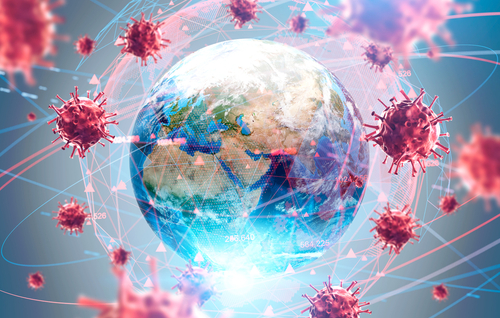The measure of humanity
We are only as healthy as the most vulnerable in our societies. As countries respond to COVID-19 and work to protect against future pandemics, Tedros Adhanom Ghebreyesus, director general, World Health Organization, says investing in health now will save lives later
The COVID-19 pandemic is the defining health crisis of our time. This previously unknown pathogen – the first coronavirus to cause a pandemic – is fast and fatal, spreading with alarming speed and shaking the foundations of health systems, economies and societies around the world.
It has exposed the fault lines, inequalities, injustices and contradictions of our world. Nations have come together as never before, and geopolitical divisions have been thrown into sharp relief.
From the beginning, the World Health Organization has worked to sound the alarm and support countries to engage and empower communities, suppress transmission and save lives by:
- Working with countries to implement a comprehensive package of public health measures;
- Bringing countries together to share experiences and lessons learned;
- Convening thousands of experts to analyse the evolving evidence and distil it into guidance;
- Launching a large international trial to find answers fast about which drugs are the most effective;
- Leading a consortium of countries and partners to accelerate the development and equitable distribution of vaccines, diagnostics and therapeutics;
- Shipping millions of test kits and tons of protective gear all around the world, focusing on those countries that most need our support;
- Training millions of health workers; and
- Working with tech companies to fight the infodemic.
The pandemic has reminded us of some simple truths: we are one humanity. We share the same planet, the same hopes and dreams, and the same fears.
Inequalities magnified
The pandemic exploits the gaps and magnifies the inequalities in health systems, underscoring the importance of investing in health workers, health infrastructure and systems to prevent, detect and respond to disease outbreaks. Strong health systems are the best defence not only against outbreaks and pandemics, but also against the multiple health threats that people around the world face every day.
And yet, on current trends, more than five billion people will lack access to essential health services by 2030 –
including the ability to see a health worker, or access to essential medicines and running water in hospitals. Consider that hand hygiene is one of the primary recommendations for preventing infection with COVID-19, yet much of the world’s population lacks access to clean water.
Gaps like these do not just undermine the health of individuals, families and communities; they also put global security and economic development at risk. As in so many crises, the most vulnerable suffer the most, and they must be our focus.
The world spends around $7.5 trillion on health each year – almost 10% of global gross domestic product. But too many countries spend too much of their health budget on managing diseases in hospitals – where the costs are higher and the outcomes are often worse – instead of promoting health, preventing disease and investing in pandemic preparedness.
Over the past 20 years, countries have spent vast sums on preventing and preparing for terrorist attacks, but relatively little preparing for the attack of a virus, which as COVID-19 has shown, can be far more deadly and far more damaging economically, politically and socially.
The COVID-19 pandemic will eventually recede, but there can be no going back to business as usual. We cannot continue to rush to fund panic but let preparedness go by the wayside.
Even as we respond to this pandemic, we must prepare for the next one. Now is an opportunity to lay the foundations for resilient health systems around the world.
If we learn anything from COVID-19, it must be that investing in health now will save lives later. History will judge us not only on how we responded to the pandemic, but on the lessons we learned and the actions we took once it is over.
COVID-19 has reaffirmed that when it comes to health, our destinies are intertwined. We are fighting an invisible enemy that knows no borders and does not discriminate. As long as it threatens some of us, none of us is safe. Global solidarity, based on national unity, has never been more important. The G7 members are uniquely placed not only to support the global response, but to lay the foundations for the healthier, safer, fairer world we all want.












